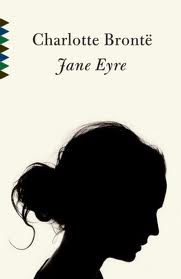 The second novel I’ve read as part of my Classic Literature Challenge is The Brothers Karamazov, Fyodor Dostoevsky’s famous last novel. Russian literature is fairly new to me (I’ve only ever read one other, The Idiot, also by Dostoevsky) but because of its considerable influence on authors around the globe (Christopher Hitchens, Franz Kafka, Albert Einstein, to name a few), I felt I owed it to myself as a lover of literature to give it a try. And while certainly not quick or altogether easy, it is a thought-provoking and worthwhile read.
The second novel I’ve read as part of my Classic Literature Challenge is The Brothers Karamazov, Fyodor Dostoevsky’s famous last novel. Russian literature is fairly new to me (I’ve only ever read one other, The Idiot, also by Dostoevsky) but because of its considerable influence on authors around the globe (Christopher Hitchens, Franz Kafka, Albert Einstein, to name a few), I felt I owed it to myself as a lover of literature to give it a try. And while certainly not quick or altogether easy, it is a thought-provoking and worthwhile read.
The book begins with the scoundrel Fyodor Pavlovitch Karamazov, a man of loose morals who has four sons between three different women, two of whom he married. Both wives eventually died, leaving Pavlovitch to raise the boys they gave him, a task he passed off to relatives while he indulged in women and booze. Little time is spent on their upbringing or on Pavlovitch’s misadventures. The real story begins when the boys reach adulthood. Dostoevsky tells every brother’s tale in turns, giving each their fair amount of time in the spotlight. The oldest, Dmitri, enters into a doomed love triangle with his father and a disreputable woman whom one is never sure if she loves either father or son or is merely manipulating them both. The middle son, Ivan, is a man of conviction and good sense and happens to fall in love with Dmitri’s ex-fiancee, the woman Dmitri scorned in favor of his father’s mistress. And the youngest Karamazov, Alexey, is a kind, albeit naïve young man intent on entering the monastery. Few who know him fail to love him, even Ivan, who is every bit as firm an atheist as Alexey is a true believer. These two engage in long and interesting philosophical debates about their opposing views and while they add little to the book’s plot, they make for a provocative and entertaining read. Fyodor Pavlovitch also has one illegitimate son, Smerdyakov, whose sad tale is told in detail and which plays a valuable role in the larger narrative.
With each of these men’s stories and that of a rather large subplot revolving around a young neighborhood boy, the son of a man Dmitri publicly shamed, who suddenly falls ill and seeks redemption in his final days from family and friends through Alexey, Dostoevsky paints a vivid picture of Russian life in the 19th century. He explores themes and issues ranging from family to religion to social norms, even dipping a toe into political issues of the day. His prose is easy enough to follow with the one exception being the interchangeable names of characters. For example, Alexey is as often called Alyosha, Dmitri also goes by Mitya or Mitka, his mistress Agrafena is also called Grushenka or Grusha, and so on. Almost every character has an alias or two that are used interchangeably and without explanation. I admit it took some getting used to. Otherwise, I had no trouble following the narrative.
Typical of 19th century Russian literature, The Brothers Karamazov is long-winded, sometimes exhaustingly so. But it is also deeply philosophical, with a grand central theme suggesting that even our most minor actions can heavily influence the lives of others, and because of that, we are all responsible for one another. I gave it 4 stars on goodreads because, though it is unnecessarily long and wordy, it is also extremely thought-provoking, dramatic and stirring. If you’re looking for something to challenge your ideals and really make you think about what’s in the minds of others as well as your own, I recommend it.
~Nikki




